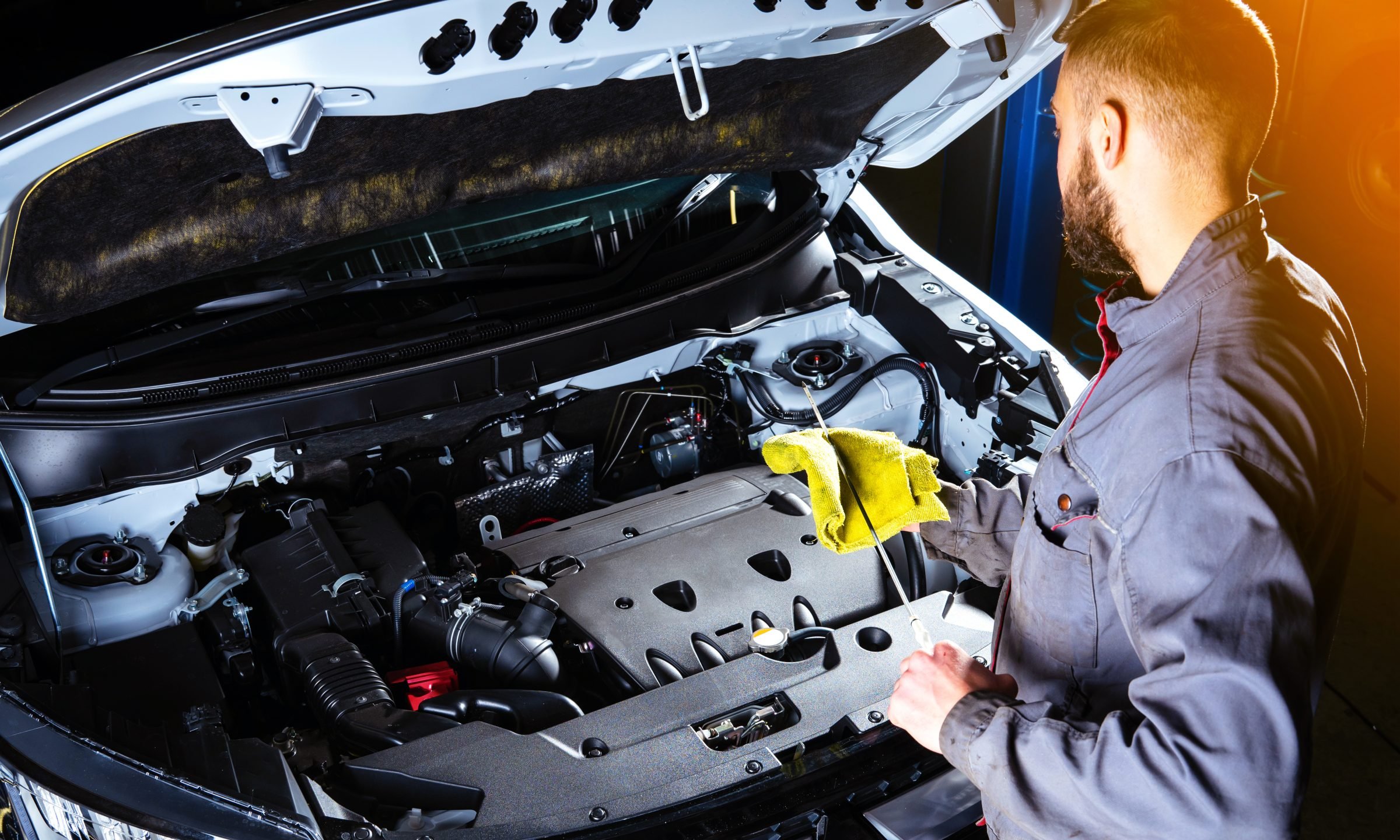All Categories
Featured
The timing belt is an essential element of your engine, in charge of synchronizing the movement of numerous engine components, such as the crankshaft and camshaft. This makes certain the engine's shutoffs open and close at the proper times throughout the burning cycle. While the timing belt may not be something you assume around often, overlooking its maintenance can lead to considerable engine damages and expensive repair work. Below's why timing belt substitute is essential for your car's longevity and efficiency.
What Is a Timing Belt and Exactly How Does It Work? The timing belt is a rubber or composite product belt that connects the crankshaft to the camshaft in an internal burning engine. The camshaft regulates the opening and closing of the engine's intake and exhaust shutoffs, and it must be timed perfectly with the activity of the pistons in the engine. The timing belt makes sure that these elements remain in sync, enabling the engine to run smoothly.
If the timing belt becomes or fails worn out, the camshaft and crankshaft will certainly no longer be integrated, which can trigger the engine's valves to hit the pistons. This causes catastrophic engine damages and often requires expensive repair work or perhaps an engine substitute.
Why Is Timing Belt Substitute Important? Over time, the timing belt can put on down because of friction, warm, and general engine wear. While it may look like a small issue, a faulty timing belt can cause major engine troubles. Below's why timely substitute is essential:
Avoiding Engine Damage: As pointed out, a busted or sliding timing belt can trigger the engine's shutoffs and pistons to collide. This results in bent valves, harmed pistons, and in serious cases, a complete engine failure. Replacing the timing belt before it damages can stop this expensive damages.
Preserving Engine Efficiency: A damaged timing belt can interrupt the synchronization of the engine components, minimizing total engine efficiency. Changing the belt aids keep optimum engine feature, guaranteeing smooth operation, enhanced fuel efficiency, and far better efficiency.
Preventing Unexpected Breakdown: A busted timing belt can leave you stranded on the side of the roadway, triggering a major trouble. By changing the timing belt at the advised intervals, you can avoid the risk of an unforeseen failure, specifically in the center of a lengthy trip or when you least expect it.
![]()
Saving Cash in the future: While timing belt replacement can appear like a cost you may wish to delay, it's more affordable than the cost of repairing or changing a harmed engine. The substitute expense is relatively cost effective contrasted to the comprehensive repair services required if the timing belt breaks. Positive upkeep can save you countless bucks in repair work and protect your vehicle's value.
When Should You Change the Timing Belt? The timing belt replacement routine can vary depending upon your vehicle's make and version. In general, the majority of manufacturers recommend replacing the timing belt every 60,000 to 100,000 miles. It's always best to consult your owner's guidebook or a trusted technician for certain recommendations for your lorry.
Indications that your timing belt may be in requirement of replacement consist of uncommon engine sounds such as ticking or yawping, problem starting the engine, or a visible reduction in engine efficiency. If you experience any of these signs, it is very important to have the timing belt evaluated immediately.
![]()
Conclusion. Changing the timing belt at the recommended intervals is a key component of keeping your engine's health and wellness and ensuring that your vehicle runs efficiently. A broken timing belt can bring about pricey repair work, engine failing, and unanticipated failures, which can be prevented with correct upkeep. Always comply with the producer's advised timing belt replacement routine and get in touch with a professional auto mechanic if you observe any kind of indicators of wear or damage. By maintaining this crucial component of your engine in excellent condition, you'll safeguard your automobile from pricey fixings and enjoy several more miles of carefree driving.
What Is a Timing Belt and Exactly How Does It Work? The timing belt is a rubber or composite product belt that connects the crankshaft to the camshaft in an internal burning engine. The camshaft regulates the opening and closing of the engine's intake and exhaust shutoffs, and it must be timed perfectly with the activity of the pistons in the engine. The timing belt makes sure that these elements remain in sync, enabling the engine to run smoothly.
If the timing belt becomes or fails worn out, the camshaft and crankshaft will certainly no longer be integrated, which can trigger the engine's valves to hit the pistons. This causes catastrophic engine damages and often requires expensive repair work or perhaps an engine substitute.
Why Is Timing Belt Substitute Important? Over time, the timing belt can put on down because of friction, warm, and general engine wear. While it may look like a small issue, a faulty timing belt can cause major engine troubles. Below's why timely substitute is essential:
Avoiding Engine Damage: As pointed out, a busted or sliding timing belt can trigger the engine's shutoffs and pistons to collide. This results in bent valves, harmed pistons, and in serious cases, a complete engine failure. Replacing the timing belt before it damages can stop this expensive damages.
Preserving Engine Efficiency: A damaged timing belt can interrupt the synchronization of the engine components, minimizing total engine efficiency. Changing the belt aids keep optimum engine feature, guaranteeing smooth operation, enhanced fuel efficiency, and far better efficiency.
Preventing Unexpected Breakdown: A busted timing belt can leave you stranded on the side of the roadway, triggering a major trouble. By changing the timing belt at the advised intervals, you can avoid the risk of an unforeseen failure, specifically in the center of a lengthy trip or when you least expect it.

Saving Cash in the future: While timing belt replacement can appear like a cost you may wish to delay, it's more affordable than the cost of repairing or changing a harmed engine. The substitute expense is relatively cost effective contrasted to the comprehensive repair services required if the timing belt breaks. Positive upkeep can save you countless bucks in repair work and protect your vehicle's value.
When Should You Change the Timing Belt? The timing belt replacement routine can vary depending upon your vehicle's make and version. In general, the majority of manufacturers recommend replacing the timing belt every 60,000 to 100,000 miles. It's always best to consult your owner's guidebook or a trusted technician for certain recommendations for your lorry.
Indications that your timing belt may be in requirement of replacement consist of uncommon engine sounds such as ticking or yawping, problem starting the engine, or a visible reduction in engine efficiency. If you experience any of these signs, it is very important to have the timing belt evaluated immediately.

Conclusion. Changing the timing belt at the recommended intervals is a key component of keeping your engine's health and wellness and ensuring that your vehicle runs efficiently. A broken timing belt can bring about pricey repair work, engine failing, and unanticipated failures, which can be prevented with correct upkeep. Always comply with the producer's advised timing belt replacement routine and get in touch with a professional auto mechanic if you observe any kind of indicators of wear or damage. By maintaining this crucial component of your engine in excellent condition, you'll safeguard your automobile from pricey fixings and enjoy several more miles of carefree driving.
Latest Posts
Explore WyHy FCU – Low Rates for Members
Published May 27, 25
1 min read
Uncover Cost-Effective Auto Repairs with Montclare’s Limited-Time Service Specials
Published May 23, 25
1 min read
Explore Montclare Auto Repair’s Premier Services and Why Drivers Trust Them
Published May 23, 25
1 min read
More
Latest Posts
Explore WyHy FCU – Low Rates for Members
Published May 27, 25
1 min read
Uncover Cost-Effective Auto Repairs with Montclare’s Limited-Time Service Specials
Published May 23, 25
1 min read
Explore Montclare Auto Repair’s Premier Services and Why Drivers Trust Them
Published May 23, 25
1 min read